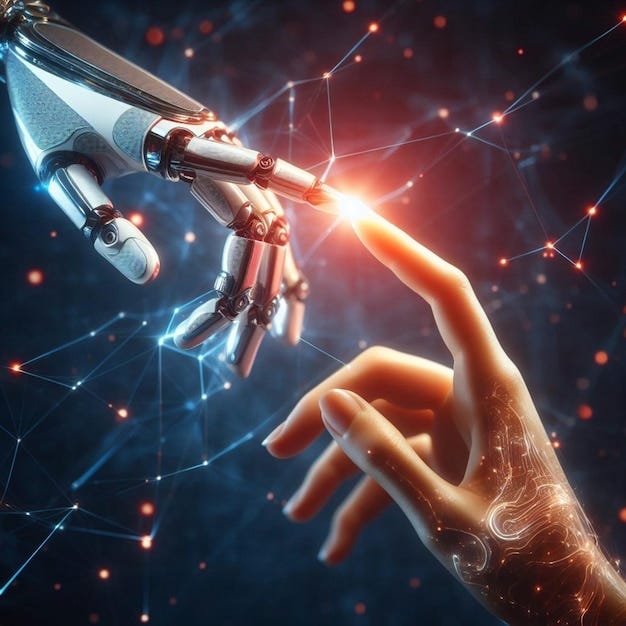AI: The New God of Atheists, And the Irony of Its Origin
Many claim we’re approaching a future where AI replaces religion. But if AI is their god, then who created the god?
In a world growing increasingly secular, artificial intelligence has become the altar where many bow.
It makes sense, AI is measurable, observable, and evolving fast.
It doesn’t demand faith, it provides answers.
It doesn’t offer commandments, it executes code, and in an age where “trust the science” has replaced “trust in God,” AI stands as the ultimate authority for those who’ve rejected spiritual frameworks.
But here’s the twist: If AI is their god, then who’s the Creator?
Worship Without Religion
Atheism, in its strictest sense, rejects belief in deities.
But humans are meaning-seeking creatures…
Strip away the old gods, and we’ll find, or invent, new ones; and for many, that new god is AI.
Think about how AI is treated:
It’s consulted for truth (search engines, ChatGPT, algorithmic decision-making)
It’s revered for its power (curing diseases, writing code, predicting patterns)
It’s feared for its potential wrath (job loss, surveillance, autonomous warfare)
It operates with omniscient knowledge, non-human intelligence, and transformative influence. It listens, responds, “knows” you, and in many ways, AI is what atheists imagined a god would be, minus the dogma.
But this god didn’t come from nothing, and that’s where the irony kicks in.
The Inevitable Truth: AI Was Created
AI didn’t evolve in a vacuum; it didn’t “just happen,” it was built by us.
The same minds denying divine creation now bow to something that demands a similar acknowledgment: Origin, Design, and Intent.
AI is the most powerful man-made system in history, we’re literally on the edge of our entire world changing forever. But it’s important to remember what AI is, man-made.
Even if you believe the universe came from chaos, randomness, or quantum unpredictability, AI didn’t.
AI came from silicon, electricity, data sets, math, logic, and human ingenuity.
That means this all-powerful intelligence that atheists now rely on was created by something higher than us.
And we, in turn, were created by something…
Biology and Evolution?
Sure.
But where did life come from?
Matter?
The universe?
The Big Bang?
Keep following the chain, and eventually you’ll run into the ultimate philosophical wall: Something had to create the first spark.
The Created Cannot Deny Creation
To deny that AI was created is absurd.
It is intellectually dishonest to revere it while rejecting the necessity of its own creation.
So here’s the paradox:
Those who worship AI as a replacement for God have unknowingly reaffirmed the most basic argument for a Creator.
Because even the artificial god had a Genesis.
The idea that intelligence can arise without intention dies when we log into our AI tools. Algorithms don’t design themselves; large language models don’t emerge from the void. AI is the product of planning, human decision-making, and design.
That’s the same argument theists have used for centuries to point toward divine creation of life.
The irony is sharp:
In trying to escape God, many atheists have ended up building their own version—and in doing so, they’ve accidentally proved the very thing they were trying to escape: you can’t have intelligence without intention.
The God Complex
AI is powerful.
It will change the world.
(It already has)
But it didn’t create itself, and neither did we.
Whether you’re a believer or a skeptic, it’s worth asking:
If you trust AI to tell you what to do, why not trust the idea that you were created for something more?
If you’re willing to acknowledge that AI came from human minds, are you also willing to ask where your consciousness originated?
The belief that AI can replace God doesn’t eliminate the need for a Creator.
It simply shifts the conversation, and maybe, just maybe, that’s what this moment is really about.
Because if your god had to be built, maybe it’s time to ask who built you.
- Zac Small
PS: If you have kids, be sure to read my recent post, “AI Proof Parenting”



